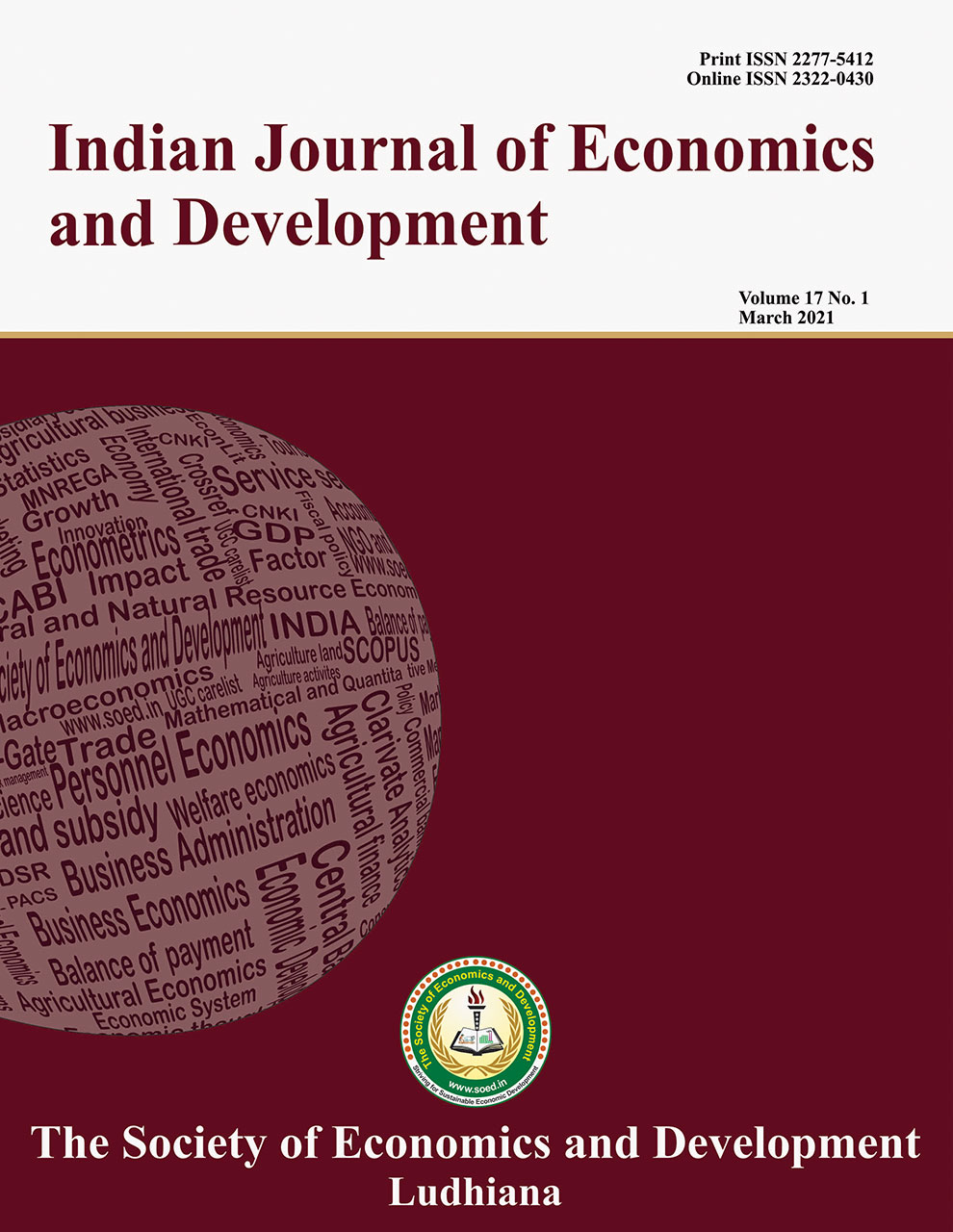Drivers of Sovereign Bond Yields in India

Price: ₹ 500
Author: Aditi Banerjee
Author Address: Former Consultant, NITI AAYOG, Ministry of Finance, New Delhi- 110001 (Delhi)
Keywords: Granger causality, sovereign bond yield, time series, vector autoregression
JEL Codes: C22, G12, H63
Abstract
This study analyzed the behaviour of the ten year nominal sovereign bond yield in India with respect to a host of factors, especially for a decade when economic growth alter considerably with time. The vector autoregression methodology (ed VAR) was applied to the monthly data of economic and financial variables from January 2012 to March 2020. The findings suggested that long-run sovereign bond yield behavior was primarily driven by domestic fundamentals, including money market fundamental. A rise in the lagged value of 91-day treasury bill and inflation exerted significant upward pressure on the ten year domestic sovereign bond yield. International factors such as exchange rate and crude oil price showed significant but mild influence. Another finding was affirmed that short-term domestic bond yield movements significantly determined long-run domestic bond yields behaviour. From an overall policy perspective, it becomes important to maintain domestic economic stability to manage fiscal and debt sustainability.
Description
Indian Journal of Economics and Development
Volume 17 No. 3, 2021, 671-680
DOI: https://doi.org/10.35716/IJED/20302
Indexed in Clarivate Analytics (ESCI) of WoS
Scopus: Title Accepted
NAAS Score: 5.15



